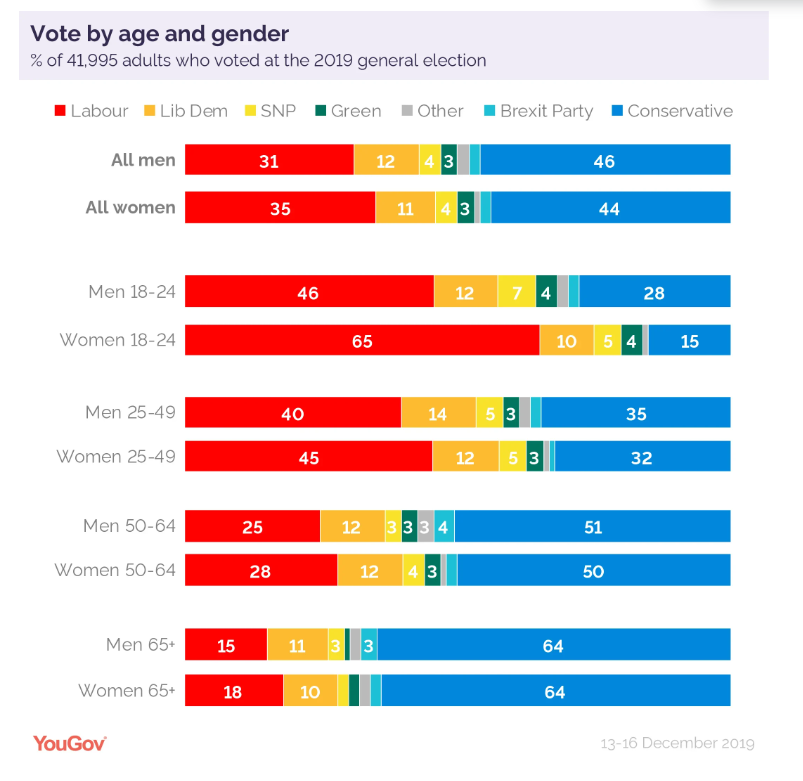AIBU? Mumsnet can sway the election

Since 2010, Mumsnet has been recognised as a political force in its own right, and the release of its own manifesto this year takes things a step further. Anna Moloney looks at why the site is so powerful – and how its drift to the left reflects a broader gendered gap in politics
In 2010, then-Prime Minister Gordon Brown hailed Mumsnet, the online HQ for all things yummy mummy, as “a great British institution”. Brimming with breast pump reviews, ovulation calculators and its infamous acronyms (AIBU = am I being unreasonable; DD = dear daughter), it seems unlikely Mr Brown was a regular peruser of the site. But given its users comprised millions of politically-engaged voters, it was an important faction to woo. Some even dubbed it the ‘Mumsnet election’.
But despite his efforts, the mums were not charmed. Biscuitgate – a saga where the Prime Minister refused to divulge his favourite biscuit during a live Mumsnet webchat grilling despite the question being put to him 12 times – perhaps played a part.
But beyond Maryland cookies and chocolate digestives (Rishi Sunak’s and Keir Starmer’s favourite biscuits, respectively), the political power wielded by Mumsnet is no trivial matter. With 9m unique visitors per month and over 100m page views, Mumsnet boasts enviable engagement figures and has even been named as a potential target for nefarious Russian bots for this election. What’s more, these users are highly political, with more than 9 in 10 of them voting in every general election.
If it were placed alongside top UK news brands in a ranking based by views alone, Mumsnet would rank at 17th, with its monthly viewing figures placing it just below the Evening Standard (10m) but above GB News (7.6m), the i (8.3m) and The New York Times (7.4m). Even The Sun (23.4m) and the Mail Online (22.5m) are not as far ahead as you may have thought.
And the site knows it, even releasing the first ever ‘Mumsnet Manifesto’ earlier this month in a signal of its political weight, with the document outlining its members’ 12 key demands for the next government.
The manifesto itself, which platforms worthy gender issues like maternity care and the decriminalisation of abortion, is predictably let down by its culture war pandering to issues of biological sex; but its spotlight on ‘women’s issues’ is politically pertinent and highlights a critical area which current electoral campaigns would do well to target.
The ‘women’s vote’
At over 52 per cent of the electorate, the ‘women’s vote’ is somewhat of a moot concept; women are, after all, actually just the majority voter. But ‘Stevenage Woman’, ‘M&S Movers’, ‘Prosecco Mums’ – these are all target demographics for 2024 and women’s changing political allegiances are arguably the driving force behind the huge swing we are set to see this July.
Indeed, if we turn back to Mumsnet, the trend is clear. According to its own tracking poll of users’ voting intentions, Mumsnet will turn red this election. While the Tories have picked up a few points in the first weeks of campaigning (users were more impressed by Rishi than Keir in their ITV debate, according to the site’s data source ‘MumGPT’), they are still significantly trailing, with 48 per cent of Mumsnet users intending to vote Labour on 4 July and just 13 per cent planning to vote Tory. Furthermore, less than half of users (41 per cent) who voted Conservative in 2019 plan to vote for them again.
How do Mumsnet users feel about Rishi Sunak & Keir Starmer? We asked MumsGPT, our AI-powered question tool, to summarise the words Mumsnetters have used the most when talking about both leaders since the general election was called last week 👇 pic.twitter.com/Y34buQh34c
— Mumsnet (@MumsnetTowers) May 29, 2024
And while Mumsnet members (typically affluent, highly educated and with a penchant for acronyms) far from represent the typical UK woman, this swing to the left does in fact speak to a broader phenomenon among female voters, who as a group are by and large moving further towards the left. This trend is generational and very recent, with women historically slightly more likely to vote Conservative. However, in the last seven years, things have shifted, with 2017 marking the first election where significantly fewer women voted Conservative than men – producing the largest gender gap seen in any vote since the 1950s. Professor Rosie Campbell, director of the Global Institute for Women’s Leadership at King’s College London, has boldly said women will decide the upcoming election – and she may just be right.
Justine Roberts, founder and CEO of Mumsnet, said social issues were largely driving the change, with health and education among the top concerns. “It’s no surprise that users are more sympathetic to Labour in these circumstances than to a Tory Party that has been responsible for health and education for the past 14 years,” she said, adding that politicians could not afford to ignore female voters. Rishi Sunak’s pledge to send Mumsnet’s DDs and DSs off for national service if elected likely also didn’t help.
The trend is most pronounced among younger women, who are increasingly becoming adrift from their more conservative male counterparts. The increasing liberalisation of Mumsnet’s user base, the core of whom are aged 25-44, reflects the drift.

What’s more, women represent the bulk of the votes left up for grabs, with new polling from Fawcett and Centenary Action showing nearly a quarter of women (23 per cent) are still undecided as to who they’ll vote for on 4 July, compared to just 13 per cent of men. Despite this, nearly half of women (46 per cent) think the parties don’t care about their vote. So are political parties being smart when they focus on issues women are statistically more likely to prioritise like care and education? Definitely. Perhaps that’s why a rather imposing ad for Labour’s childcare plans has dominated Mumsnet this week.

 Yahoo Finance
Yahoo Finance 